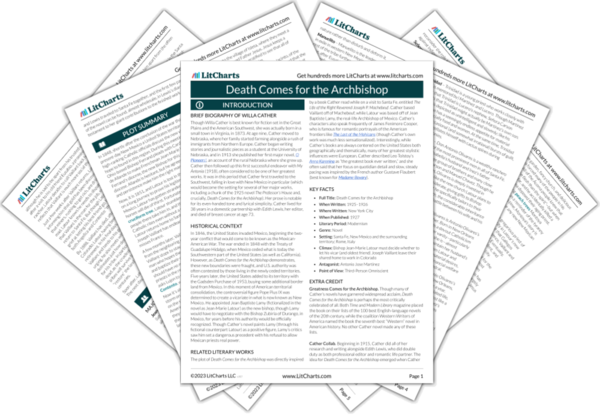In this vital passage, Latour begins to understand how material concerns can complement spiritual ones. Vaillant is an ardent and able missionary, traveling long distances and converting huge new swathes of the country to Catholicism. But in order to accomplish that task, he needs to tend to his body and spirit, finding daily, tangible sources of energy that he can then metabolize into religious work.
